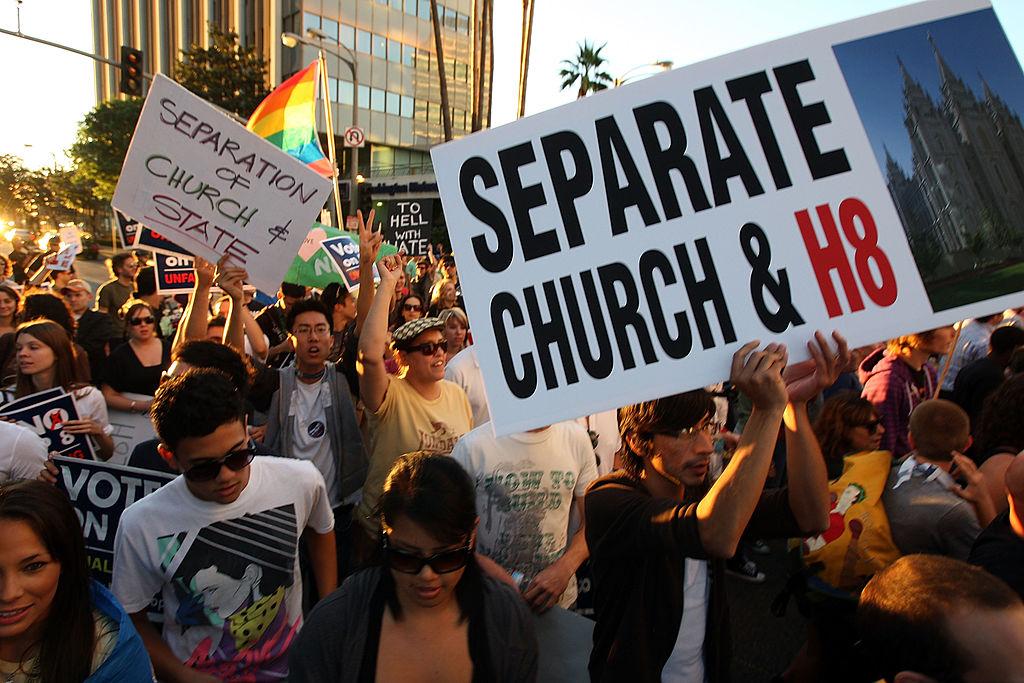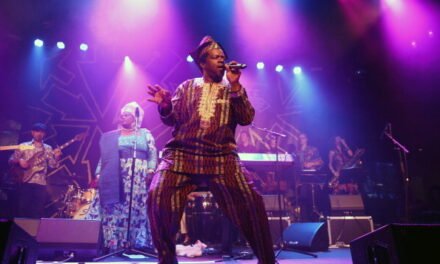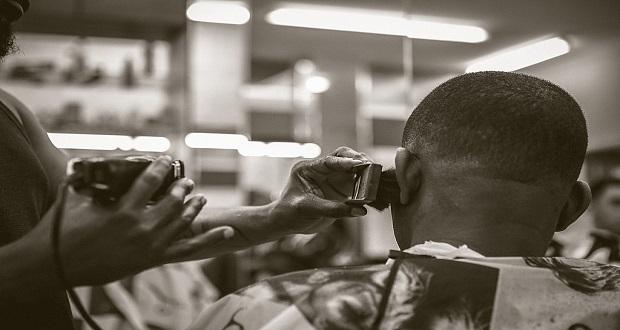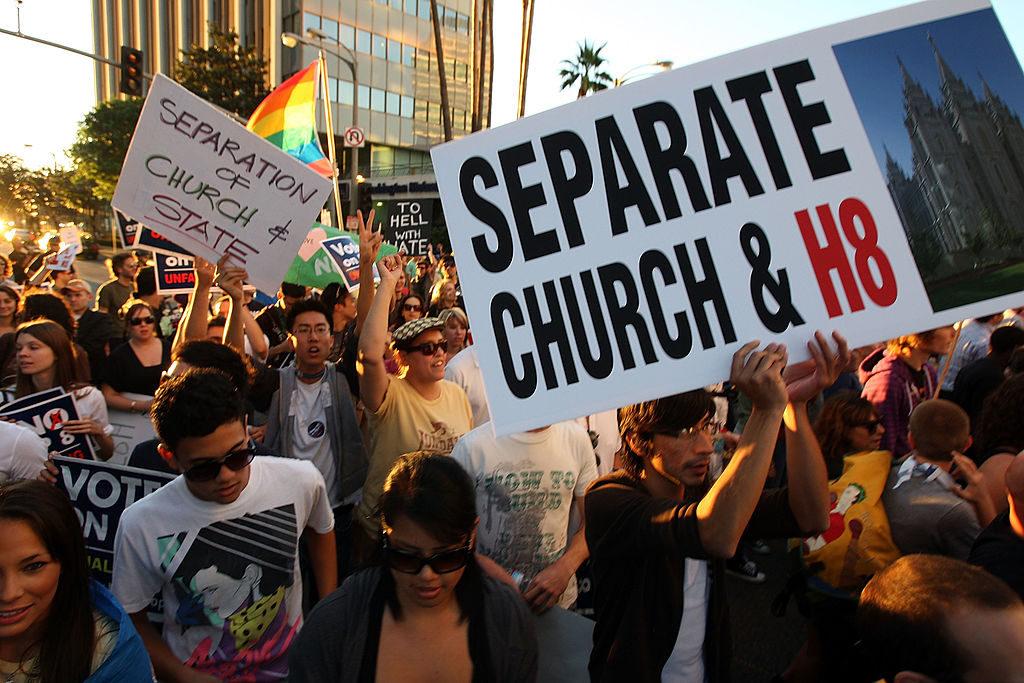
*This post was updated on Oct. 8, 2019, to better reflect our intentions to provide readers with responses to anti-LGBTQ rhetoric in the religious context and affirm our position on LGBTQIA inclusion, equity, and justice.
“I love all people as the Bible commands, but I also cannot condone homosexuality.” “Marriage is reserved for a man and a woman according to the Bible.” “The practice of homosexuality is incompatible with Christian teaching.” These views may be juxtaposed with arguments like, “God taught us to love everybody.” “The interpretations of bible passages that suggest homosexuality are wrong are taken out of context; they don’t mean that at all.” “God is just, loving, kind, and open, and I strive to model that with everyone.” “God has taught us not to judge.”
Biblical references can be and are interpreted in many ways depending on one’s worldview, which is tied to what we have been taught. Many scholars say that the famous biblical passages that appear to say that homosexuality is wrong are actually misinterpreted. Using biblical references to defend anti-LGBTQ beliefs does a great deal of harm to this community and society in general. These assertions lead to policies and practices that are exclusionary, discriminatory and can inspire violence. According to the FBI, hate crimes against gay people are on the rise. Unpacking conversations about LGBTQ issues is critical as we strive for a more inclusive world.
Attempting Bold, Inclusive Conversations® in faith-based communities can be especially difficult on value-based topics like human sexuality. The United Methodist Church is a prime example. In February, after a contentious gathering of worldwide church leaders, the denomination voted 53 to 47 percent to uphold its traditional stance and ban gay and lesbian clergy and same sex marriage. The Methodist Church is not alone in grappling with this topic. Those opposed to LGBTQ rights have left the Episcopal Church, Presbyterians have split, and some young evangelicals are leaving their churches over the lack of LGBTQ inclusion.
The Winters Group has been working with the West Ohio Conference of The United Methodist Church for the past two years. They have assembled a team of nearly twenty Cultural Coaches who are licensed qualified administrators for the Intercultural Development Inventory (IDI), a tool that measures individual and group capacity to effectively bridge across differences. The Winters Group has engaged the coaches in guided learning around empathy, cultural competency, and leadership in polarized times. The Cultural Coaches meet with churches throughout the conference and assist in leading conversations around new pathways of discipleship, faith formation in changing neighborhoods, shared-mission identity in politically polarized congregations, and more. Needless to say, the Church’s stance on human sexuality has been an important, and sometimes painful, topic of discussion for the group. I think it is safe to say that this group wished that the vote would have gone the other way. I asked Rev. April Casperson, Director of Diversity and Inclusion for the West Ohio Conference, to co-author this post with me. Here is what she shared:
The United Methodist Church is a worldwide Christian denomination with a vast array of contextualized practices and a range of theological beliefs. While no geographic region of the United Methodist Church is monolithic by any means, within the United States, there are substantial differences in theological interpretations of the nature of scripture and the mission of the church, as well as beliefs about human identity, political mandates, and the importance of diversity.
The West Ohio Conference covers about two-thirds of the state of Ohio and includes over 1,000 churches and worshipping communities. We are home to a full spectrum of theological and political beliefs. Every church has theological diversity in their congregation. As a result, West Ohio is committed to helping diverse communities move forward in shared ministry together.
In our work across the conference, we have found the joy in giving churches permission to have shared mission and ministry without asking everyone to look and sound the same. We even welcome unique expressions of faith communities that fit different regions. John Wesley wrote in one of his sermons, “Though we cannot think alike, may we not love alike? May we not be of one heart, though we are not of one opinion? Without all doubt, we may. Herein all the children of God may unite, notwithstanding these smaller differences. These remaining as they are, they may forward one another in love and in good works.” Cultural competency helps us engage in ministry together and find grace in the variety of ways in which we worship and live out our faith.
Cultural competency helps us engage in ministry together and find grace in the variety of ways in which we worship and live out our faith. Share on XApril has shared with me in other conversations that, because of the many interpretations of “thus saith the Lord,” inclusive conversations on human sexuality usually end with the parties at the same polarized place that they started. She said, “It is hard to name the particular undercurrent of emotional labor associated with this work.” Another cultural coach lamented that “getting to a place of empathy is tiring when you interpret God’s teaching on human sexuality differently from those who you think take a narrow view.”
Changing well-entrenched beliefs on human sexuality may be impossible. However, is it possible to have conversations where the opposing views are heard to foster greater understanding? The United Methodist Church has provided some guidance to its clergy and lay leaders on how to have what they call Courageous Conversations about human sexuality, including exercises like this one:
After prayer, the group forms an opening circle and each person shares what brought them to the session on human sexuality. During this aspect of the session only “naming” and listening takes place — no discussion. Next, each participant is asked to write down biblical stories, passages, doctrine, facts, and their opinions that support their position on human sexuality. Writing their perspectives helps to keep people on topic for the next part of the conversation, when they are asked to read their positions to others. What follows is a conflict spectrum exercise where participants are asked to name where they are on a spectrum, from traditional to progressive. The exercise starts with non-threatening topics like vacations on the beach or mountains; preferring summer or winter; and then moves to topics like identify God as ‘the Father’ or ‘God the Holy.’ After this, the group moves to the topic of human sexuality. Places in the room are designated for the different ends of the spectrum, and participants go to that place and talk about why they positioned themselves as they did. Each group is asked to prepare a list of strengths and weaknesses of their position on chart paper. Participants then engage in a gallery walk to read the responses. New small groups are formed across the belief spectrum and they are instructed to listen, not debate, and answer these questions:
- How has this issue had an impact on you or someone you know?
- What is your greatest concern/fear regarding homosexuality?
- What are you most curious about regarding homosexuality?
- What is it in you — your assumptions, wounds, biases, etc. — that causes you to react so strongly to the issue of homosexuality?
- What Bible stories or passages shape how you view homosexuality?
- Where do you see God leading the church regarding homosexuality?
You might ask why the same questions are not posed about heterosexuality. Depending on the identities and worldviews represented in the room, the group might or might not be ready for that discussion. This particular exercise was designed to encourage participants who may initially have more concerns or fears around homosexuality to reflect on their fears, stereotypes and biases, with the aim of expanding their capacity to broaden their worldview. This exercise is designed as one in a series of conversations.
What is your greatest concern/fear regarding homosexuality? What is it in you – your assumptions, wounds, biases, etc. – that causes you to react so strongly to the issue of homosexuality? Share on XAt this point, the large group comes back together to hear a summary of the small group discussions. The facilitator remains neutral, encouraging different perspectives without debate or judgment. The facilitator emphasizes that the goal of the group is to listen for understanding. To close the session, participants are asked to consider this question: “What if you get to heaven and your position on human sexuality is wrong?” In addition, they are asked: “What one thing will you take with you from this conversation?”
The purpose of such an exercise is not necessarily to change the worldviews of participants, but rather, to offer a process and a safe space, expertly facilitated, where the prime goal is to listen with an open mind, gain knowledge about others’ perspectives, share commonalities, and reflect on differences. In the end, maybe I will never agree with you regarding my interpretation of the Bible and human sexuality, but perhaps I can better understand or respect your position.
Conversations like this may lead people to follow their values and beliefs and make critical decisions about their affiliation with The United Methodist Church — or any institution for that matter. If they choose to leave, it is based on a well thought-out, informed decision, around which they were willing to listen to opposing views. Don’t confuse this with “agreeing to disagree” — it goes much deeper. It is agreeing to understand, respect, empathize, and make difficult choices without malice or ill-will toward those with whom you disagree.
Don’t confuse this with “agreeing to disagree” — it goes much deeper. It is agreeing to understand, respect, empathize, and make difficult choices without malice or ill-will toward those with whom you disagree. Share on X
÷;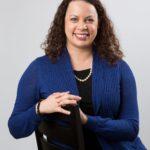
About April Casperson, Co-Author
Rev. April Casperson is Director of Diversity and Inclusion for the West Ohio Conference of The United Methodist Church. She is an ordained deacon passionate about diversity and inclusion, vocational discernment, and the organizations and systems that recruit, educate, and equip leaders for thoughtful, intentional ministry. Rev. Casperson previously served as VP of Institutional Advancement at Methodist Theological School in Ohio.

